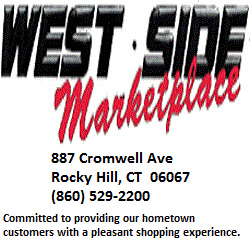
CCM Committee Examines Regional Cost Sharing
By MARK DIPAOLA
WETHERSFIELD - A Connecticut Conference of Municipalities (CCM) committee-formed between officials in several towns throughout the state-will examine regional cost sharing, as well as tax structure, with the goal of drafting policy proposals in time for the next legislative session. The Committee-composed of mayors, town managers, and recruited â€Е"experts” in finance and other relevant areas-is examining the issues at a time in which near billion dollar deficits are prompting belt-tightening at both the state and local level.
The group will break into subcommittees-one to explore inter-municipal cost saving, and the other to examine and diversity the state’s tax structure, particularly with the aim of diversifying revenue sources-according to CCM Executive Director Joseph DeLong.
â€Е"It’s one committee working on two parallel paths,” DeLong said over the phone. â€Е"Hopefully, they’ll come together.”
Wethersfield Town Manager Jeff Bridges, who is serving as a member of the Committee, noted that towns already share certain costs. Wethersfield has split purchase orders for vehicles and supplies and belongs to regional cost-sharing entities such as CROCOG, the Metropolitan District Commission, (MDC) CT Prime, and CIRMA for insurance.
â€Е"We do a lot of it now,” Bridges said over the phone. â€Е"We have vehicles, equipment, but now what’s the next step?”
Larger proposals have come from Hartford. This past session saw the failure of a bill that would have effectively mandated the consolidation of emergency dispatch centers for towns that fall below a certain population threshold and call volume.
While the bill got pushback from public safety officials for a myriad of reasons-including cost, relocation logistics, and potential complications in municipalities with fluctuating call volumes-DeLong said that towns would be willing to explore such measures if other restrictions were addressed to make more significant efforts possible.
On the answering points issue, for example, such a move would have been complicated by existing collective bargaining agreements that would have made consolidating municipal staffs infeasible, DeLong said. CCM’s goal, in forming the committee, was to address regionalism from the local perspective in an effort to make the process more doable for towns, he said.
â€Е"There are a lot of things that towns and cities are already doing,” DeLong said. â€Е"And of the larger things, we’d be able to do them if the legislature took away certain barriers.”
On the tax structure itself, the Committee will take a particularly close look at the property tax-mainly what DeLong describes as an â€Е"overreliance” throughout the state.
â€Е"That creates a variety of issues,” he said. â€Е"It squeezes home ownership. It can be a hindrance to businesses.”
And in urban municipalities, the money just isn’t there, DeLong said.
â€Е"Urban centers need a lot more services, but you have a lot of property that is exempt,” he said. â€Е"So you have a greater need, and no funding.”
When CCM formed a similar Committee a couple of years ago, a â€Е"tiered” tax structure that would have included non-taxable entities such as colleges and hospitals was examined.
While municipalities do get some money back in the form of the Payment in Lieu of Taxes (PILOT) funding, the amount is typically less than the revenue lost through the exemptions, noted State Representative Jonathan Steinberg, Chair of the Municipal Opportunities/Regional Efficiencies (MORE) Commission.
As for alternatives, Connecticut can study other states for informational purposes, but the structure must ultimately be an â€Е"organic” one, Bridges said.
â€Е"You can’t just pick up another state’s model and plop it down on Connecticut,” he said. â€Е"We have to find ways that work for us.”
And the local perspective spearheading CCM’s efforts might be what the discussion needs, says Steinberg, whose MORE Commission is cited by DeLong as an impetus for forming the Committee.
â€Е"Maybe it’s better if it’s stimulated by the municipalities,” Steinberg said.
Steinberg said that he would like MORE to continue and maybe collaborate with CCM, but that its status for the future may be uncertain with the Speaker of the House Brendan Sharkey-a leading proponent of the Commission-not seeking reelection.
MORE’s legislative proposals include the answering points consolidation bill, as well as centralized transition services for special education students, and regionalized collective bargaining.
Steinberg said that reservations about some state-level proposals-such as those pertaining to collective bargaining-raise legitimate issues, but that other obstacles have been â€Е"overcome in other states”.
â€Е"I think what we’re talking about is changing a mindset,” he said.








